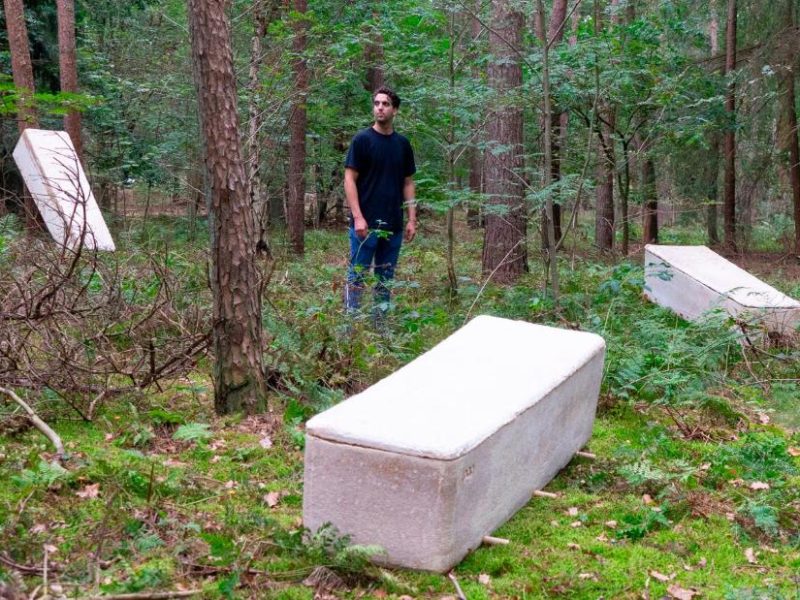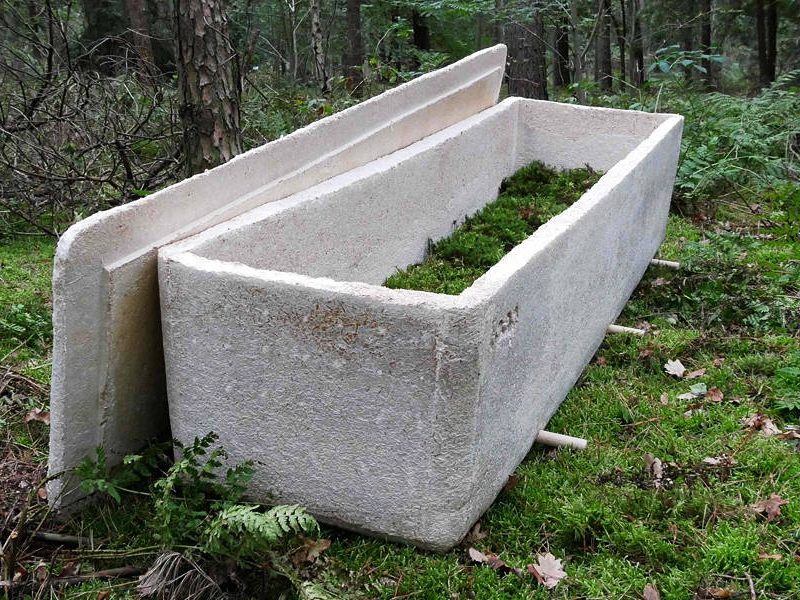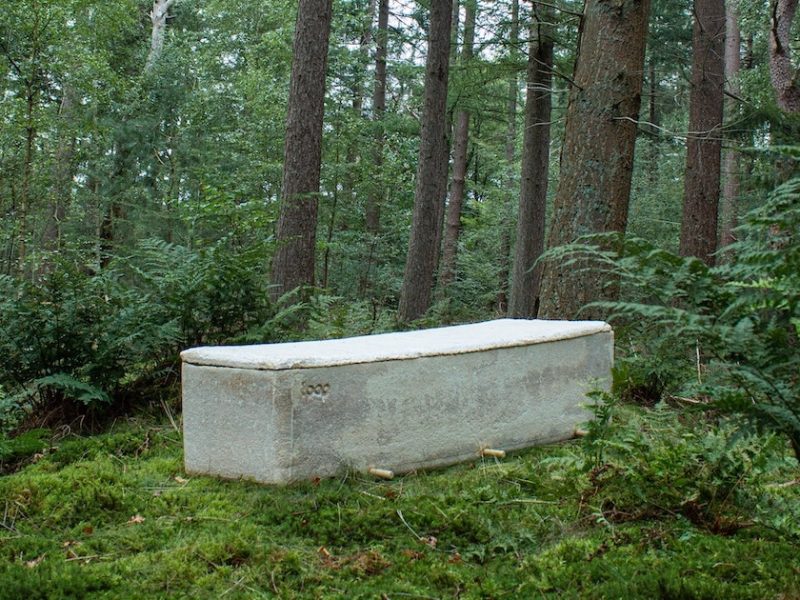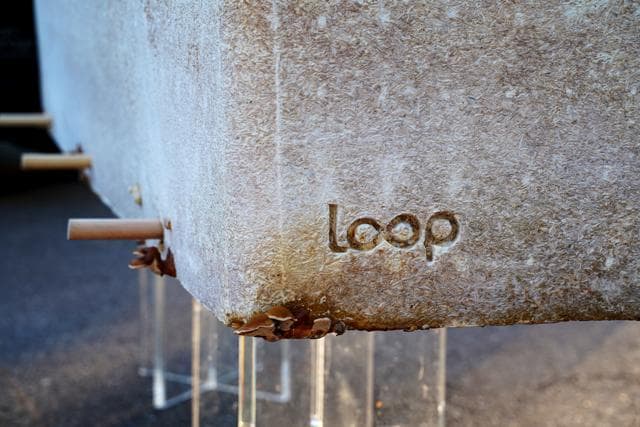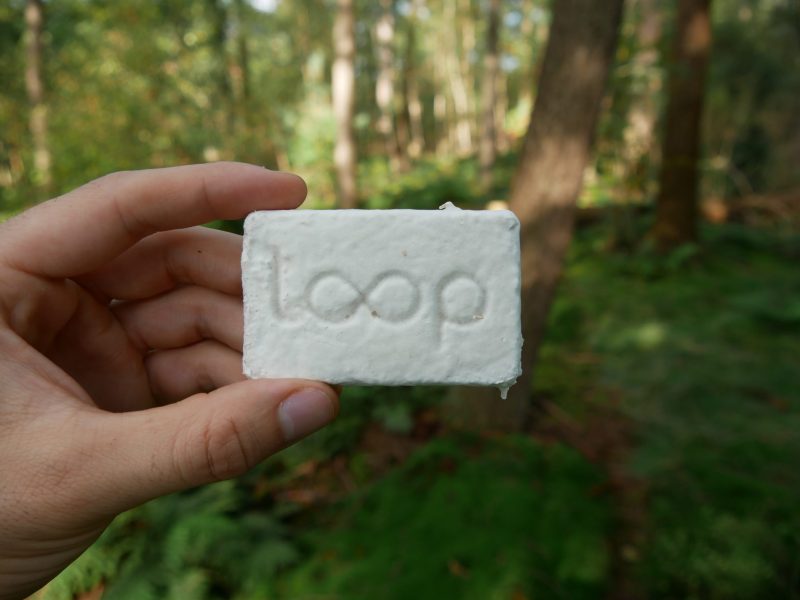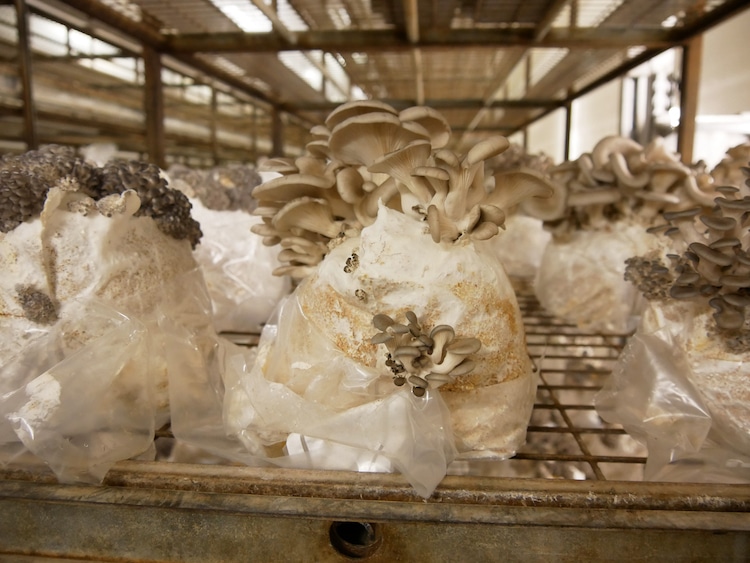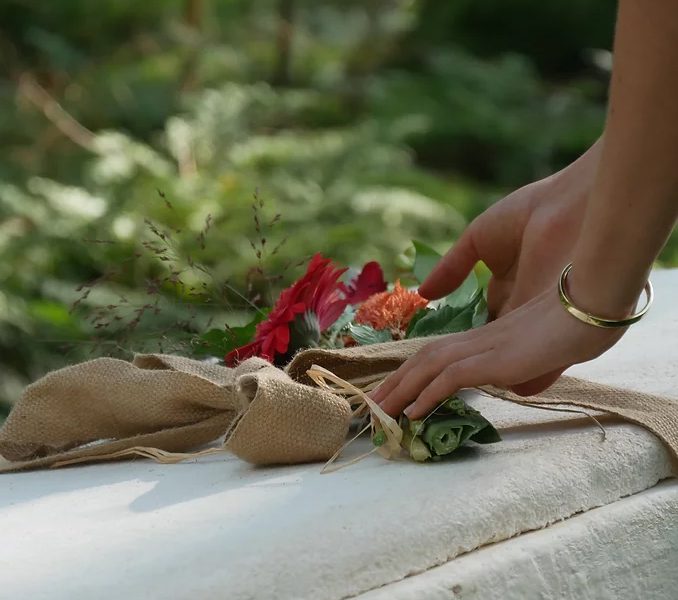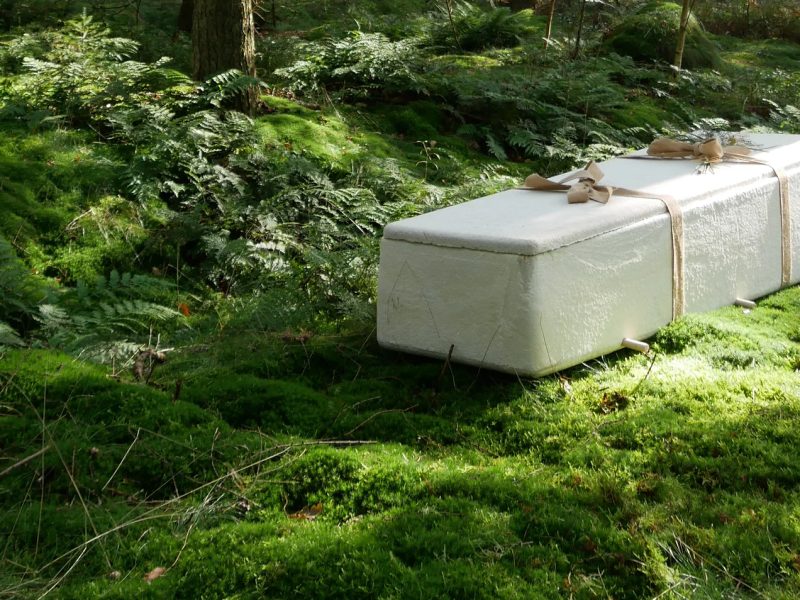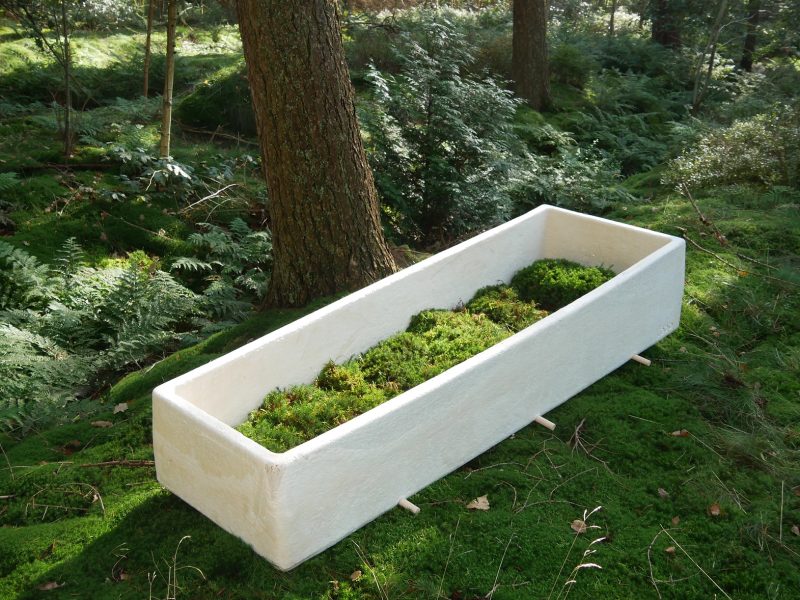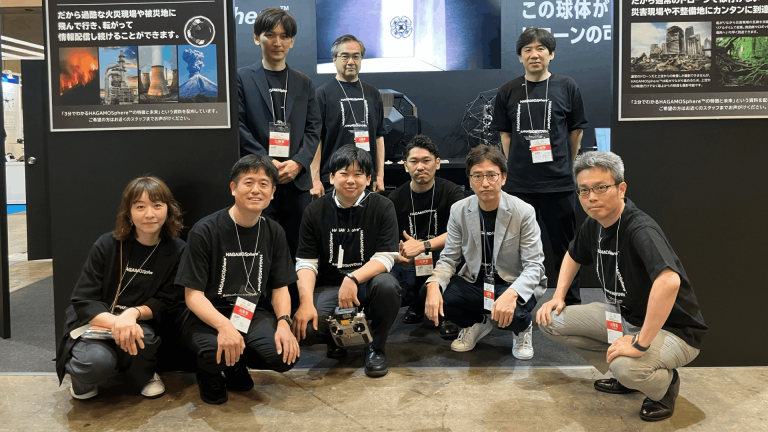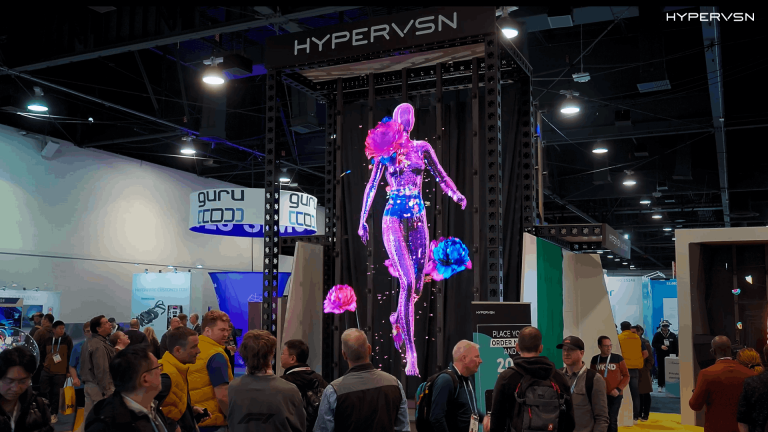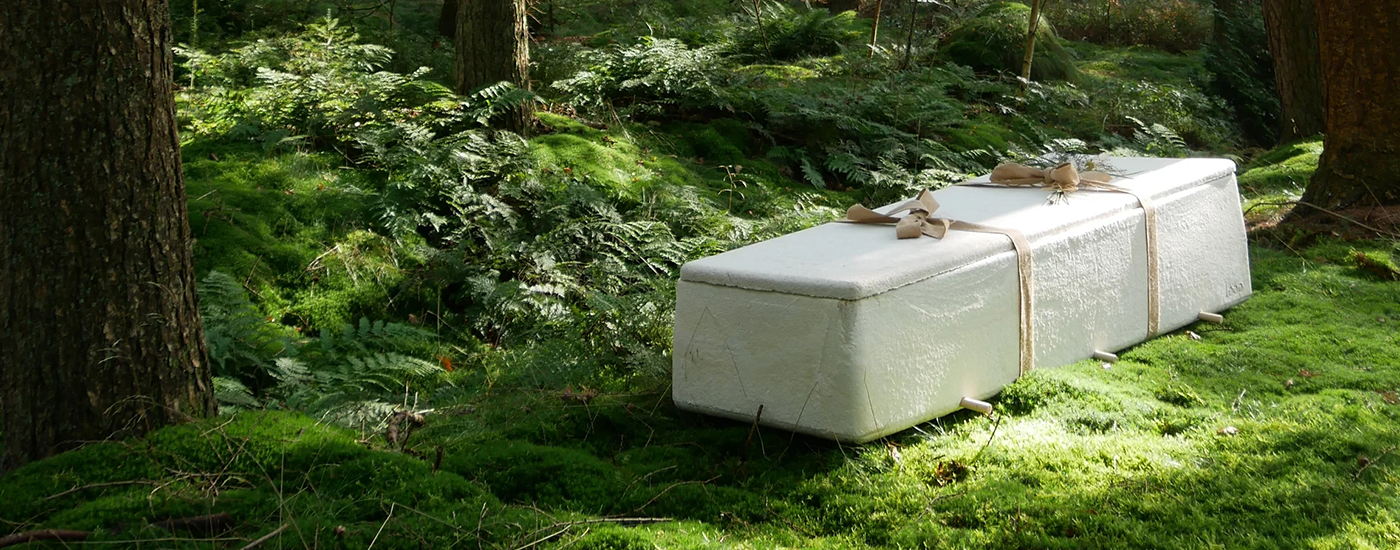
Loop Living Cocoon
The Dutch biotechnology company Loop has created a unique biodegradable, eco-friendly coffin that turns human flesh into compost. The coffin is named Living Cocoon, which perfectly corresponds to a coffin made of fungi, microbes, and plant roots.
Bob Hendrikx, the creator of Living Cocoon, has found a way to use mycelium mushroom to bring humans back to nature after passing away, literally. Mycelium is a natural recycler that converts plastic, oil, and other pollutants, recycles them, neutralizes toxins, and turns them into nutrients for the environment. Mycelium fibers can be used to make a variety of things, including food, clothing, building houses, and creating natural coffins.
It takes an average of 7 days to create a Living Cocoon in the laboratory. The mycelium is a very pliable material, which allows Bob Hendrikx to create “growing” coffins of correct shape more than two meters long and weighing about 25 kilograms. The Living Cocoon structure decomposes within 30-45 days, while it takes 2-3 years for human remains to decompose. For comparison, in a traditional wooden coffin, the decomposition of remains can take up to 10 years.
The decomposition in a normal coffin releases toxins and other substances that negatively affect the soil, poisoning and contaminating it. The situation is complicated by the lacquered coatings of the coffin body and the metal elements, which take a long time to decompose. The mycelia that make up Loop Living Cocoon neutralize the toxins released when the flesh decomposes, converting them into a nutrient medium for the vegetation around it. This coffin allows a person to benefit nature even after death, enrich it, and contribute to new life.
MORE WINNERS
NEWSLETTER
Sign up to learn more about our project and to stay up to date.




